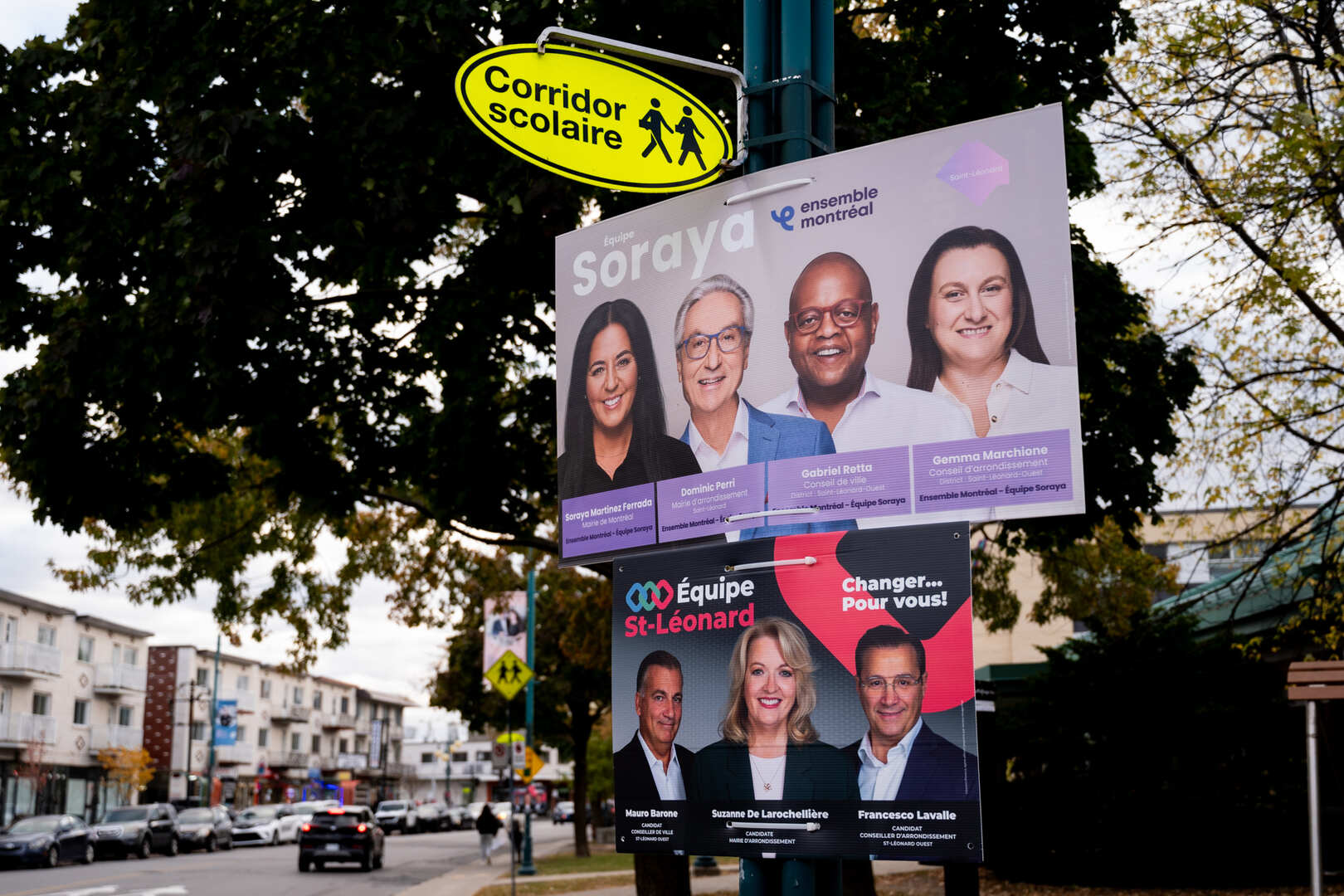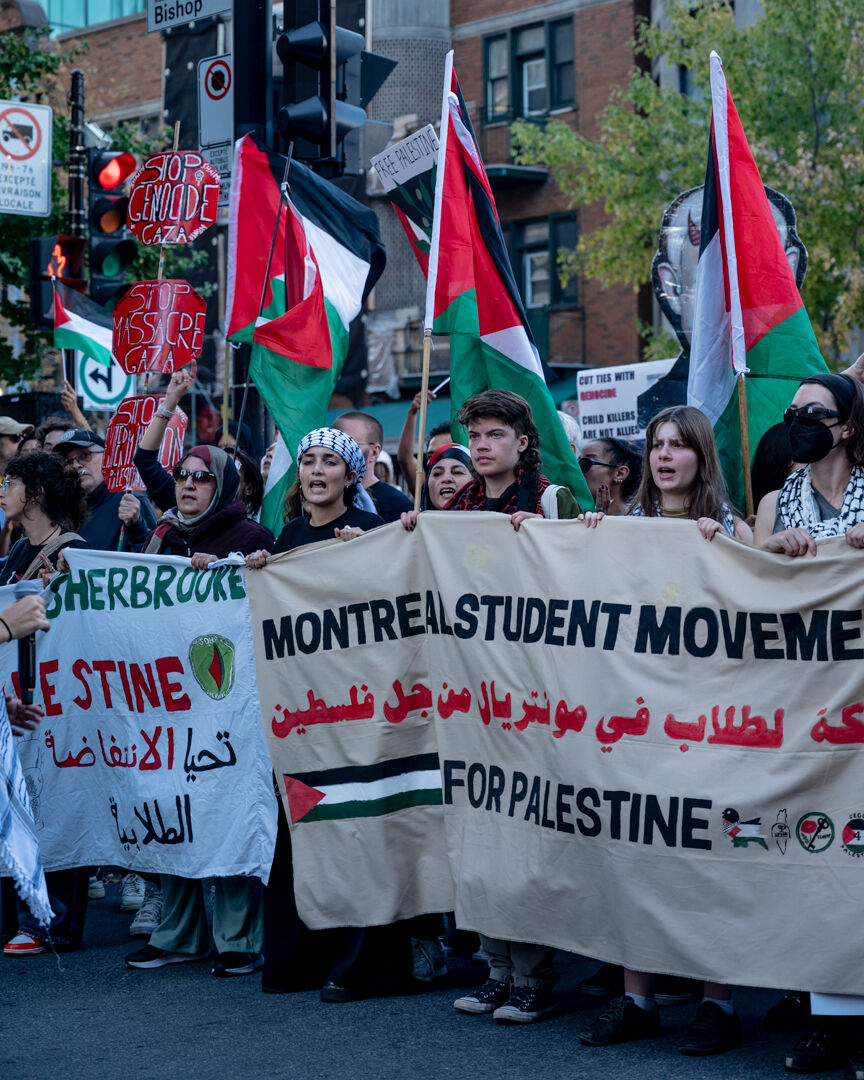Through FaceTime, Hannah takes me around her living room. She wants to show me her decoration for the month of Ramadan. “I bought lights and we made banners. I wanted to set the mood for Adam, especially since we are alone here...” she explains to me. During these times of confinement, Hannah and her son will not be able to count on the warmth of the community to furnish loneliness. “Normally, we went to the mosque at least twice a week to share community meals at the mosque. It was good for morale, and it helped the wallet...”, she underlines. Hannah is one of the thousands of people in Quebec who appreciate the month of Ramadan for its material, but especially community support. The pandemic and lockdown will certainly change this annual dynamic.
“It's okay, it will be a different Ramadan, but we will find the positive in that,” concludes the mother. Behind her, the lights are twinkling. ***Foudil Selmoune is an imam at the ICC mosque in Brossard. Every year, under normal circumstances, its mosque welcomes and feeds some 300 people free of charge every night of Ramadan. In the last days of the month, that number rises to 1,000. “This year, obviously, that won't be possible. So, we decided to prepare some hot food to take away for the break of the fast. We will thus be able to prepare meals for 300 people every day of Ramadan, God willing,” he explains. He points out that, normally, people who come to share meals at the mosque do not necessarily do so out of financial need, but especially for the spiritual and community side. With this in mind, the sharing of take-away meals is offered to everyone during this period of confinement. “We have even put up a poster outside, “Free meals for all”, in order to share these benefits with our neighbors and our global community.” However, a majority of people who contact the mosque for meals during this unique Ramadan are often in a precarious situation: students, single mothers, etc. “However, a majority of people who contact the mosque for meals during this unique Ramadan are often in a precarious situation: students, single mothers, etc. “If the person cannot come looking for the meal, we have volunteers to deliver it. I myself do it when I can,” says Imam Selmoune.
Hot meals, warm baskets
At the end of the phone, Sister Sabria laughs. “Yes, it's different this year. You have to wash food three times and take even more sanitary measures, it's exhausting! ” says the 72-year-old lady. Sister Sabria became her only name. An icon of the Muslim community, she has been feeding thousands of people for decades, by being in the kitchen herself. After stopping last year due to health problems, she put on her apron again in these troubled times. “I had a dream. I felt that I had to get back to it, to help...”
Normally, Sister Sabria and her volunteer army feed some 700 people per Ramadan evening, in addition to her regular work. This year, confined to her apartment, she will be content with 20 people, most of them homeless people and students. “It's quite a lot of what I can do alone in my kitchen,” she laments. At the same time, his foundation has set up a food basket project. “I am really trying to personalize the baskets. I call each family, I ask them about their needs, their tastes. I am also forced to sort according to urgency, there is too much demand and I take people's donations very seriously...” she explains elsewhere.
You should know that during Ramadan, every Muslim is required to feed at least one person in need during the month. This mandatory charity is named after Zakat al-Fitr, and many Montrealers entrust their money to Sister Sabria. If the needs are greater, the help follows thankfully. When I called her on a Saturday morning, Nermine Barbouch was hard at work. Nermine Barbouch is a liaison officer and spokesperson for the Amal Center, an organization that offers psychosocial services to vulnerable women and families, while conducting awareness-raising activities on domestic violence and mental health issues in ethno-cultural communities. In addition to remote psychosocial follow-up for their clients during a period of lockdown, the center has set up an initiative of virtual food baskets in the form of grocery gift cards. “I expected to feed a dozen families, but we have now reached more than sixty, in addition to donations. The community was extremely generous,” says Nermine Barbouch. The liaison officer does not explain this generosity solely by the influence of the month of Ramadan, but by the pandemic. “COVID has doubled people's generosity. The pandemic has affected us all, rich or poor, it has come to raise awareness. People want to help.”
Giving with dignity
It was this desire to help that motivated Fekhreddin Chibani to launch a small foundation, Change Dounia (Dounia means “world” in Arabic). “I don't even have the ambition to make it a foundation. You can just call it a group of young people who want to take action,” illustrates the engineer by training. Motivated at the beginning by the desire to help the most disadvantaged in his country of origin, Algeria, Fekhreddin Chibani quickly realized that the needs were enormous, and all over the world. Including the city where he grew up, Montreal. “Last year, we organized an iftar (fast break dinner) for international students here. They were alone, isolated. Ramadan is a great opportunity to come together and to be united,” he says. With the pandemic, this plan obviously fell through this year. “We thought we could prepare hot meals and go carry them, but the logistics were complicated and would have involved a lot of back and forth, but the logistics were complicated and would have involved a lot of back and forth, not ideal with social distance! ” The solution: Ramadan baskets delivered to your home, with enough fresh, non-perishable food to eat for a week. What was originally intended to help international students turned into a community initiative. “We started getting requests from refugee families, or people in need. And not only Muslims. You don't refuse to help others,” continues the founder of Change Dounia. Thanks to the generosity of a butcher and fruit store, which offered their products for free, 150 baskets have already been distributed. “We are doing our best, but I receive hundreds of messages a day. At some point, I'm not Trudeau either! ” He jokes. Like her elder Sister Sabria, Fekhreddin makes sure that her baskets meet real food needs and tastes. “We're going to find honey, semolina, couscous, couscous, coriander, and oriental spices. Everything you need to eat what you love to eat, not just what you need to survive.”
For him, in fact, it is important to preserve the dignity of the people to whom we give, both in content and in form. “When we deliver, people must think that it is a simple delivery from Maxi”, he illustrates. As for the contents of the baskets, its illustration is all the more equivocal. “The basket you receive, we want it to be the one that your mother would have given you. We want to fill not only your belly, but your eyes and your heart.”




.avif)
.avif)
.jpg)
.avif)


.png)